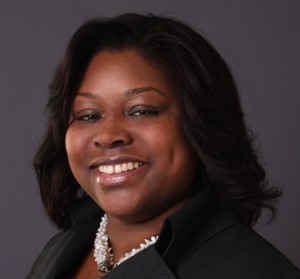Staff Spotlight: Gisele Shorter

Gisele joined Turnaround for Children in 2015 as Vice President/Executive Director, New York and New Jersey. She oversees the execution of Turnaround’s school improvement model within all partner schools in both New York City and Newark, New Jersey.
THE 180: What brought you to Turnaround?
GISELE SHORTER: A desire to think more broadly about and engage in the development of school-based resources to support young people with a variety of emotional, behavioral and cognitive needs. To have the opportunity to think about direct service and the broader district imperative. I chose to work at Turnaround for Children because I want to stand at the intersection of practice and policy.
THE 180: What is unique about the way Turnaround partners with schools?
GISELE SHORTER: In Newark, New Jersey and Washington, D.C. we partner directly with the district, in conjunction with local superintendents, to develop a clear set of outcomes and deliverables. From there, we co-select partner schools and support these schools by developing systems and procedures in service of those outcomes. By being fully integrated into the districts, it creates a shared understanding of goals and helps us better track and monitor progress.
In New York City, we partner directly with school leaders. Through a diagnose and prescribe model, we collaboratively create a strategy to build a supportive learning environment and develop skills and mindsets to help students succeed. We then support the school leadership in articulating our value, progress and deliverables to superintendents and district leaders.
THE 180: You act as the liaison between the central and school-based staff. Can you tell me what a typical day looks like?
GISELE SHORTER: Functionally the role and responsibility of an Executive Director is to intimately understand the end user. In our scenario, the end users are schools serving high concentrations of young people growing up in states of poverty and in need of academic and behavioral resets.
There is no typical day, but I do have a typical week. I spend about three days a week on site at our schools. My direct reports, the program directors, who guide, lead and direct our school-based teams meet with me on site so that I can understand their progress and provide both technical and strategic planning support. The other two days a week, I spend in back-to-back meetings with members of the central team discussing long range visioning, programmatic resets, , what is working in our measurements and what is not.
THE 180: Did you always know that you wanted to do this kind of work?
GISELE SHORTER: No, I went to college thinking that I would work on for the CIA, with a focus on nuclear power and resources. I went to Manhattan Country School, a socially progressive pre-K-8 school on the Upper East Side that promotes the idea that each student has a responsibility to and role in shaping society. So from an early age I was very invested in volunteerism and social and community service.
In college, while pursuing my dream of the CIA, I volunteered for community organizations, assisting in their development and fundraising efforts. At the same time that I realized the CIA was not for me, I also realized how much I really loved the work I was doing with these organizations. But I saw it as a passion, not a job.
I worked in sports and entertainment after college but still continued to volunteer. As my passion for social and community service continued to grow, a career shift just made sense. My first job in the nonprofit world was for the Anti-Defamation League’s World of Difference Institute.
THE 180: What do you think is the most important thing that students need to succeed?
GISELE SHORTER: Reinforcing messages and caring adults that support them to have not only a belief that they can succeed, but showing them success is attainable. We are talking about young people not only growing up in states of poverty but experiencing significant traumas, and the impact that that has on their development –not only their brain, but their physiology at large – and this also has an impact on their normative behaviors and belief in possibilities.
THE 180: What is your favorite part of being at Turnaround?
GISELE SHORTER: The ability to sit in the intersection between practice, program design, innovation and policy.

Share This Story